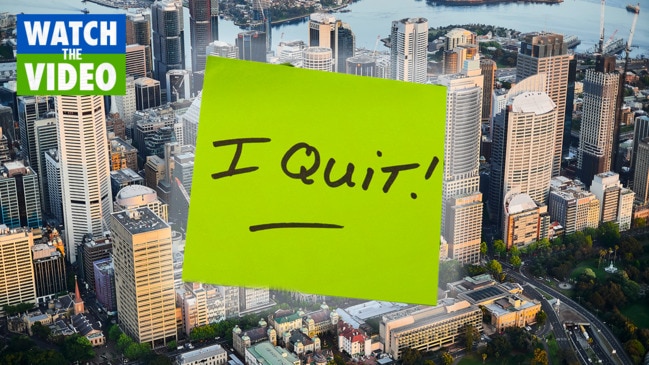Time management tip that could skyrocket productivity
You might have heard this term dredged around in school, or lurking in the required skills section of a job ad. But an expert has a new name for it.

At Work
Don't miss out on the headlines from At Work. Followed categories will be added to My News.
Whether you’re a university student, employee or jobseeker, knowing how to effectively manage your time is crucial but not always easy.
In fact, with the recent report by the Productivity Commission revealing that Australia is experiencing its lowest level of productivity growth in 60 years, it could be that time management skills are only going to become more important.
Australian Chamber of Commerce and Industry chief executive Andrew McKellar said of the report, “if Australia stays on its present course, and fails to kickstart productivity growth, future incomes will be 40 per cent lower, and the working week five per cent longer”.
What is time management?
One of Australia’s top time management experts and the author of The Life List, Kate Christie says that time management is better described as “time investment”.

“We cannot manage time, we all have exactly the same amount of time … as Elon Musk, regardless of how healthy or wealthy or stealthy we are. We can’t buy more, we can’t steal it, we can’t rewind it or fast forward.
“So we need to start thinking about our time the way we think about our money- as an enormously valuable, precious and very limited resource. And so like our money, we have to invest it.
“If you had a million dollars, and you had the option of investing it in a bank account returning 1 per cent versus a bank account returning 10 per cent, you’re going to invest it in the bank account returning 10 per cent.”
What are 5 time management strategies?
The Melbourne woman says her top five time management tips include:
1. Avoiding multi-tasking
“Despite the myth, multi-tasking does not work. It will cost you 40 per cent of your productivity. Focus on one task at a time.”
2. Batch your tasks
Batching means to spend whole chunks of time on one task, before moving on to the next one. Ms Christie recommends taking 45 minutes per ‘batch’, before having a 10 minute break.

3. Avoid mobile phone use
While you might require the use of your phone for work, notifications every few minutes can be distracting and often lead to multi-tasking.
4. Manage interruptions
Ms Christie recommends booking a meeting room, working from home or talking to your colleagues to find periods of uninterrupted time throughout the day.
5. Stop ‘people pleasing’
While that new email or ping might contain just a small task, saying “yes” to it, means saying no to the task you already have at hand.

Other time management techniques include:
The Pomodoro Method
Similar to batching your tasks, the Pomodoro method sees you work consistently for 25 minutes before having a 5 minute break.
The Eisenhower Matrix
This organises your work into a quadrant of not important and important, and of those two categories, urgent and not urgent. From here, you can work from the most important, urgent tasks first, while deciding when to complete the important but not urgent tasks. Then, you can delegate unimportant but urgent tasks to another team member, and delete the unimportant and not urgent tasks altogether.

What is the importance of time management?
As shown by Australia’s recent productivity findings, we have a lot to get done. Whether it be as students, workers or employers, the pressure for output is heavily existent, and the lines between life and work can overlap as a result.
“People are constantly thinking about working harder, “ confirms Ms Christie.

“If we’re not constantly thinking about smart time investment, and perhaps not blurring that distinction between work and home, we’re going to burn out, we’re going to work all the time.”
So, she says, time management strategies are “more important now than ever”.
Why is my time management getting worse?
As reported by the Harvard Business Review, 40 per cent of employees are interrupted at least 10 times per day, while 15 per cent are interrupted over 20 times.
According to Ms Christie’s data, “each time we’re interrupted, it takes us 23 minutes to get back on track.”
“So on average, you’ll take on two other tasks before you get back into the task you were interrupted from.”

With mobile phones practically attached to us (or literally, if you have an Apple Watch), we need effective time management strategies more than ever to help us manage the constant stream of interruptions.
Are time management apps effective?
While apps like Pomodoro can help you use the method in your workday, one of the top-rated time management apps on the App Store is Todoist, sporting five stars from over 8,300 reviewers. This app allows you to organise your tasks and prioritise them accordingly, giving you clarity around your workday.

Other top recommended apps include Toggl Track, which tracks your time completing tasks for the day, and Remember The Milk, which allows you to delegate tasks to other members in your team.
Originally published as Time management tip that could skyrocket productivity


